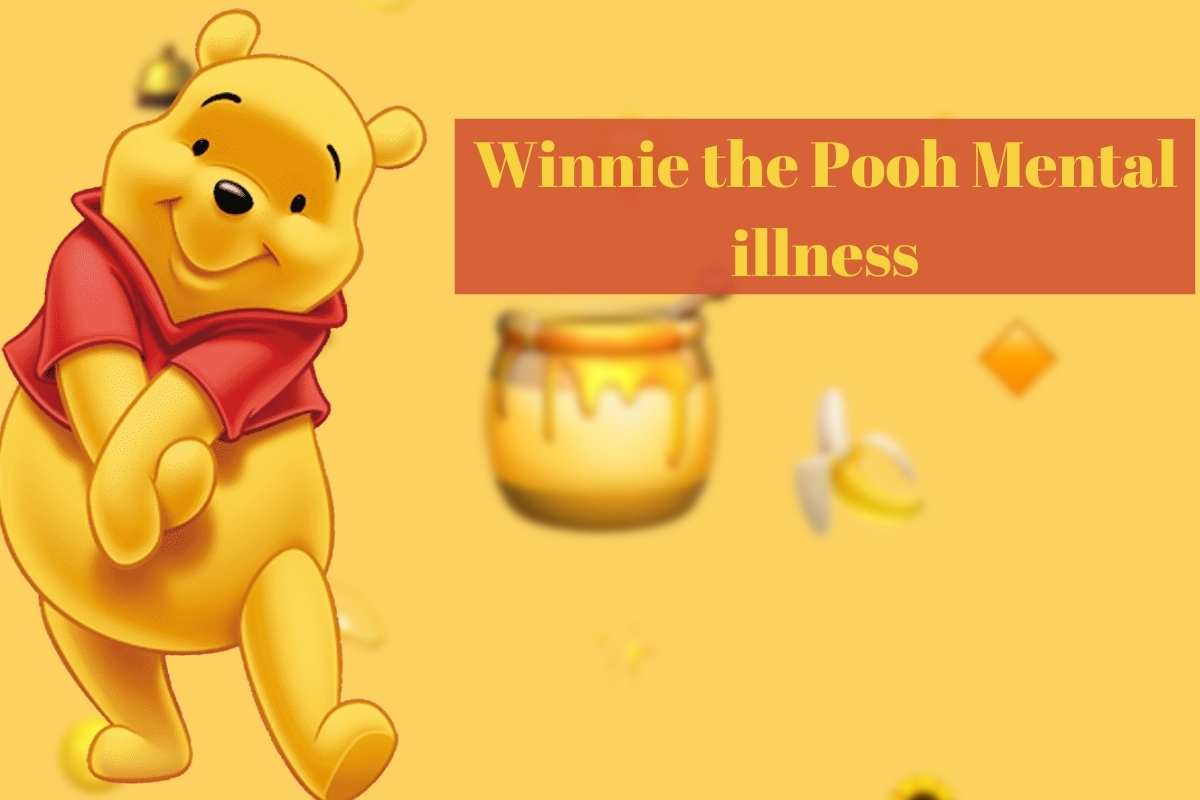Winnie-the-Pooh, whose other names include Pooh Bear and Pooh, was developed by English author A. A. Milne and English illustrator E. H. Shepard. Winnie-the-Pooh (1926) is the first collection of stories featuring the character, and The House at Pooh Corner (1927) is the second. When We Were Very Young (1924), Milne’s children’s verse collection includes a poem about the bear, and Now We Are Six (1927), Milne’s second collection of poetry, features many more poems about the bear (1927).
For example, in 1960, Alexander Lenard’s Latin translation of the Pooh stories, Winnie Ille Pu, was the only Latin book to appear on The New York Times Best Seller list. The original stories were released in English in 1958. In 1961, Walt Disney Productions obtained a film and other rights license for A. A. Milne’s Winnie-the-Pooh stories from Milne’s estate and licensing agent Stephen Slesinger, Inc., adapting the Pooh stories under the unhyphenated name “Winnie the Pooh.”
Winnie the Pooh Mental Illness
Based on the findings, Pooh had multiple disorders, with Attention Deficit Hyperactivity Disorder being the most noticeable. The inability to focus on tasks at hand and an unusually high rate of activity are hallmarks of this mental health condition. Additionally, “Pooh’s perseveration on food and his repetitive counting behaviors highlight the diagnostic potential of Obsessive Compulsive Disorder (OCD),” according to the CMA study.
Disorders of Characters in Winnie the Pooh
Christopher Robin
The CMA study suggests a Freudian interpretation for why the little kid named his bear “Winnie the Pooh” (the word “w*iner” is slang for the male reproductive organ), which may seem like a fairly revolting idea. According to Freud’s psychoanalytic theory, a person’s s*xual desire plays a significant part in shaping his or her personality, suggesting that Robin’s preoccupation with the word “w*iner” may have some psychoanalytical underpinnings.
Tigger
It would appear that the tiger has ADHD in addition to a persistent case of “risk-taking behaviors,” which includes him being impulsive about trying everything and everything.
Piglet
Piglet, Pooh’s trusted companion, and best buddy was diagnosed with a severe case of generalized anxiety disorder at one point in his life. According to the report, Piglet also had issues with his sense of self-esteem. It describes him as “poor, worried, bashful, and flustered.”
Kanga
It is speculated that the Kangaroo is afflicted with a case of social anxiety disorder, which may explain why she is so persistently overprotective of her son, Roo (although, to be fair, what parent isn’t?)
Owl
Even though Owl had a well-deserved reputation for being the most bright character, it appears that she struggled with dyslexia to some extent. According to CMA, the fact that he frequently misspells words in addition to his difficulty in correctly spelling words points to the possibility that he suffers from dyslexia.
Eeyore
It has been determined that the donkey’s constant state of existence qualifies as a “depressive condition.” The “chronic dysthymia” that Eeyore suffers from is to blame for the stressful and depressing episodes that he goes through.
Rabbit
In addition to his “tendency to be immensely self-important and his peculiar belief system that he has a great many relations,” it is believed that Rabbit suffers from OCD. This is said to occur in conjunction with Rabbit’s condition.
For more information like this do visit lakecountyfloridanews.com

